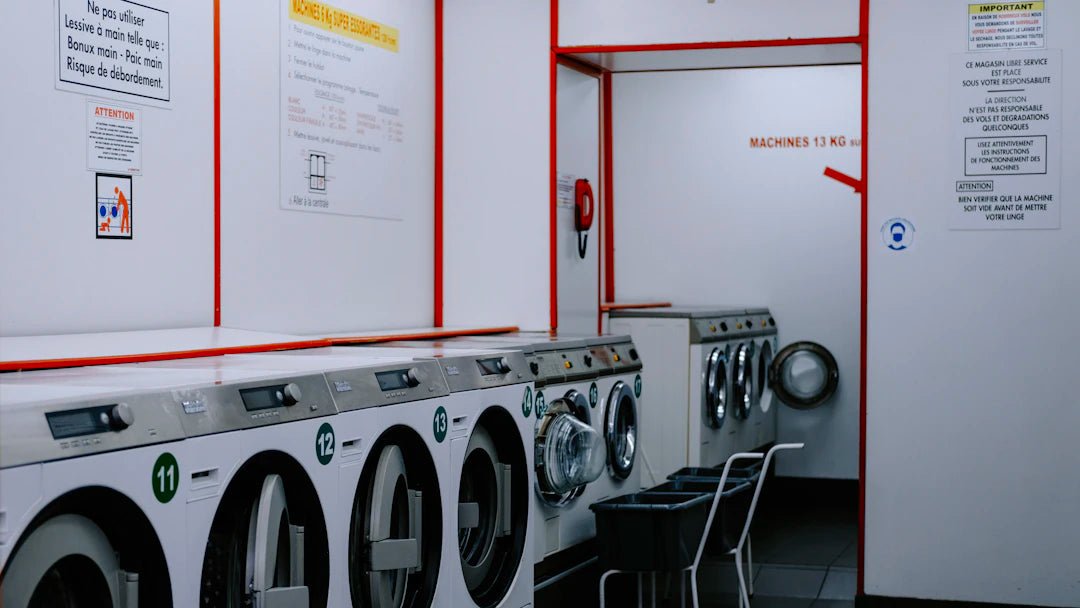Overview
Regular cleaning and maintenance of kitchen appliances are essential for efficiency, safety, and longevity. This guide covers effective cleaning methods for refrigerators, ovens, microwaves, dishwashers, washing machines, and small appliances. Key tips include creating a cleaning schedule, using mild cleaners, and keeping necessary cleaning supplies handy. Investing time in appliance care saves money on repairs and promotes a healthier home environment.
Frequently Asked Questions
1. Why is regular cleaning of appliances important?
2. How often should I clean my refrigerator?
3. What is the best way to clean an oven?
4. How can I maintain my dishwasher?
5. What are some essential tips for using kitchen cleaning essentials?
Appliances are an integral part of our daily lives, making tasks easier and more efficient. However, if not properly cleaned and maintained, these trusty machines can become less effective and even potentially harmful. In this comprehensive guide, we will explore how to clean and maintain your appliances using kitchen cleaning essentials. Keeping your appliances in top shape not only prolongs their lifespan but also ensures a healthy and hygienic environment in your home.
Why Regular Cleaning is Important
Over time, dust, grease, and food particles accumulate on your appliances, which can lead to:
- Reduced efficiency
- Unpleasant odors
- Wear and tear that leads to costly repairs
- Potential safety hazards
By implementing a regular cleaning schedule, you ensure that your appliances serve you well and stay safe to use. Let’s dive into the specifics of how to clean and maintain various types of appliances found in your home.
Cleansing Your Kitchen Appliances
Refrigerators
Your refrigerator is one of the most crucial appliances in your kitchen, keeping your food fresh and safe to eat. Here's how to maintain it:
- Empty and Sort: Begin by removing all items from your refrigerator and checking expiration dates. Dispose of anything that's spoiled.
- Wipe Down Shelves: Use a mixture of water and vinegar or a mild detergent to clean shelves, doors, and walls. Ensure you reach into corners where crumbs and spills often hide.
- Clear Drainage Holes: Check for any blockages in drainage holes, typically located at the back of the fridge.
- Vacuum Coils: Don't forget about the condenser coils! Vacuum them at least twice a year to keep your fridge running efficiently.
Ovens
Whether you have a gas or electric oven, keeping it clean is crucial for optimal cooking performance. Follow these steps:
- Remove and Clean Racks: Take out the oven racks and soak them in warm, soapy water. Scrub away any stubborn grease before rinsing.
- Use Baking Soda Paste: Create a paste with baking soda and water, applying it inside the oven. Allow it to sit overnight before wiping it down the next day. This method is an effective way to tackle tough stains without harsh chemicals.
- Clean Glass Door: Don’t forget the oven door! Use a glass cleaner or a simple vinegar-water solution to make it shine.
Microwaves
Cleaning your microwave may seem like a hassle, but it's pretty straightforward. Here’s how:
- Steam Clean: Fill a microwave-safe bowl with water and a few slices of lemon. Microwave on high for about five minutes to create steam that loosens grime.
- Wipe Down Interior: Use a damp cloth or sponge to wipe the inside, paying attention to the ceiling and any stubborn spots.
- Clean the Exterior: Wipe the outer surfaces with a mild detergent, ensuring you don’t use anything abrasive that could scratch the finish.
Maintaining Large Kitchen Appliances
Dishwashers
Dishwashers make cleaning up after meals easy, but they also require attention. Here's how to properly maintain your dishwasher:
- Regularly Check the Filter: Most dishwashers have a filter that captures food particles. Rinse it under hot water and replace it regularly.
- Run Empty with Vinegar: Consider running a cycle with a cup of vinegar in the top rack to clean the interior and eliminate odors.
- Inspect Spray Arms: Ensure that the spray arms aren't blocked by food and can rotate freely.
Washing Machines
To maintain your washing machine, follow these steps:
- Clean the Drum: Run a hot water cycle with vinegar and baking soda to remove grime and odors from the drum.
- Wipe Down Seals: Check the rubber seals around the door for any mold or mildew and wipe them down regularly.
- Check Drain Filter: Keep an eye on the drain filter for lint and debris, which could cause blockages.
Small Appliance Maintenance
Blenders and Food Processors
These handy appliances are essential for many recipes. Here’s how to care for them:
- Immediate Cleaning: After using, fill the container with warm water and a drop of dish soap, then blend to clean. Rinse thoroughly afterward.
- Check Parts Regularly: Make sure all blades and seals are in good condition. Replace any worn-out components to maintain performance.
Toasters and Toaster Ovens
Your toaster and toaster ovens should not be neglected either:
- Shake Out Crumbs: Make it a habit to shake out crumbs regularly and clean the crumb tray.
- Wipe the Exterior: Use a damp cloth to wipe down the outside. Avoid getting water into any electrical parts.
Tips for Using Kitchen Cleaning Essentials
Simple cleaning and maintenance can significantly enhance the longevity of your appliances. Here are some essential tips:
- Create a Cleaning Schedule: Mark your calendar for regular cleaning of each appliance based on how frequently they are used.
- Stock Up on Essentials: Always keep the necessary kitchen cleaning essentials on hand, such as vinegar, baking soda, microfiber cloths, and sponges.
- Read the Manual: Familiarize yourself with the manufacturer's guidelines for cleaning and maintaining your appliances to avoid any damage.
- Be Mindful of Chemicals: Use mild cleaners whenever possible, as harsh chemicals can sometimes damage the surfaces of your appliances.
Want Longevity? Invest in Smart Maintenance
Maintaining your appliances is a no-brainer when you consider the time and money you’ll save in the long run. By developing a cleaning routine based on the guidelines above, you can keep your appliances shining bright and functioning optimally. Remember, your kitchen cleaning essentials are important allies in this process! Keep your appliances clean, and you’ll extend their lifespans while creating a healthier kitchen environment for you and your family.
Linked Product

Ultimate Home Cleaning Kit
The Ultimate Home Cleaning Kit offers a comprehensive solution for maintaining cleanliness throughout your home and vehicle. With versatile all-in-one cleaners in convenient sizes, it allows for effective cleaning in various spaces, from kitchens to offices. Additionally, the inclusion of scented sachets enhances the freshness of your environment, making it suitable for everyday use.
View Product

Share:
Tackling Seasonal Cleaning: A Complete Guide
Smart Cleaning Strategies for Small Spaces